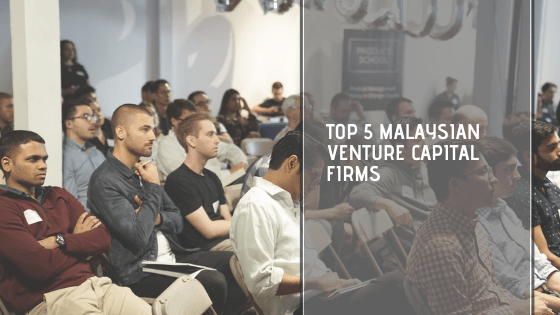The outbreak of COVID-19 has made it increasingly difficult for accelerators in APAC to survive. With international travel bans, rigorous health regulations, and rising cases around the region, the connection between investors and startups is slowly dissolving. However, virtual accelerators in Southeast Asia and the rest of the region could be a silver lining for creative investors looking to prosper during this economic crisis.
Here are some of the top accelerators making the switch to virtual, and how it might just save some tech startups in Southeast Asia.
Virtual accelerators
During conventional accelerators, startups are typically physically present to experience the benefits of the program. Virtual accelerators need to provide the same value while eliminating the need to relocate.

Accelerators are a crucial part of the startup ecosystem. We look at 5 promising startup accelerators in Southeast Asia.
Many of Southeast Asia’s tech startups have been going through tough times, with only 3% of them likely to survive if the pandemic continues much longer. The need for resources and mentorship has never been higher. Virtual accelerators are a great way to keep the startup community connected. Whenever there is global hardship, the need for collective support increases.
Other accelerators in the region should follow Brinc, EduSpaze and Tribe’s examples, as they have already made the switch to virtual for their upcoming programmes.
Tribe
Singaporean blockchain accelerator, Tribe, has close ties with its country’s Government. It has a vast network of global corporations that connect with local and international startups in the blockchain ecosystem.
Tribe has already made efforts to shift to virtual for their third cohort, where it will incubate ten blockchain startups from a wide range of industries, including healthtech, supply chain, and cybersecurity.
The notion of going virtual evolved through mutual agreement between the company and Singaporean government officials. Some parts of the programme might be bumpy due to the new operations; however, it’s an excellent starting point for keeping the tech community in the country alive during this pandemic.
EduSpaze
Edtech accelerator EduSpaze has converted their entire programme into an online version for cohort 2, as they just announced. The pandemic hit them during the middle of their inaugural programme and a quick pivot allowed them to ensure a successful graduation for their first cohort.
To make things easily accessible for local and global companies alike amidst the ongoing pandemic and travel restrictions, EduSpaze has taken the entire programme online for cohort 2.
This means that participating companies are not required to be physically present in Singapore as long as they are willing to commit 8-10 hours per week for online training and mentoring sessions. Signups for cohort 2 are now underway here.
Brinc
In Hong Kong, Brinc was already taking innovative measures to keep its accelerator active when the virus first started to gain momentum in early February 2020.
Instead of postponing its program, Brinc made the bold decision to switch the entire operation online. It thought this to be feasible, considering that it has the infrastructure and experience to run a virtual program.
Along with making changes to the accelerator’s internal operations, Brinc is making changes to its curriculum to better support its startup founders during the transition. Many startups are facing change with an open mind, and for some, it is a great way to prepare for the current “new normal protocol” happening globally. Brinc uses software like Zoom, Slack, and its own internal management systems to virtually run its accelerator.
How can virtual accelerators benefit startups?
While most are looking at the virtual change as an inconvenience, some are optimistic about the benefits of going virtual. Here are some of the benefits of signing up to virtual accelerators:
More Exposure – Traditional demo days are usually hosted onsite at the accelerator’s headquarters or a large convention centre. With the need to maintain social distancing, virtual demo days allow startups to present to a larger group of VCs, mentors, and potential clients.
Global Networking Opportunities – The new work from home standard has changed how we look at virtual meetings. Now, startups can connect with potential partners, investors, advisors, and clients all over the world through digital mediums. Many investors are open to joining virtually, considering the ability to meet physically is extremely limited.
Creative Optimisation – A physical meeting doesn’t always produce the best results. Companies are starting to learn how to get the most out of virtual conferences and networking events. The Covid-19 pandemic forces both startups and investors to adapt to a rapidly changing environment and optimise their processes.
What does this mean for tech startups in Southeast Asia?
While some startups are quickly adapting to the change, many are struggling and uncertain about what to expect in the future. As local governments rush to contain the virus and keep their people safe, startups are scrambling to survive the recession.

Here’s how you can maximise your startup accelerator experience as a startup.
Thankfully, the region has tons of young, tech-savvy founders who already have the systems and experience to virtually run their businesses.
According to Panachit Kittipanyangam, the president of the Thailand Tech Startup Association (TTSA), Thailand’s large startup sector will suffer more from the pandemic than international firms.
Other countries like Indonesia, Singapore, and Malaysia are also racing to keep their booming startup economies alive. Industries such as travel and hospitality, are getting hit much harder than others and need to adapt quickly to survive.
Fortunately, many startups and accelerators in Southeast Asia are banding together to find a solution to keep the market alive. As history has shown us many times before, with the right mindset and resources, anything is possible.
